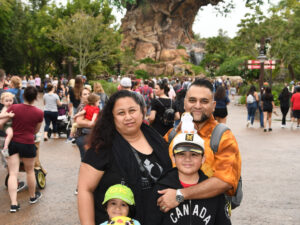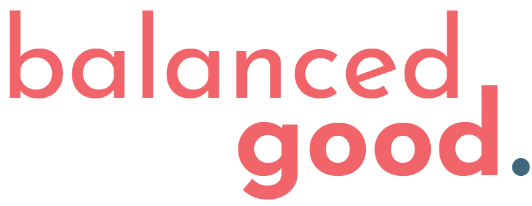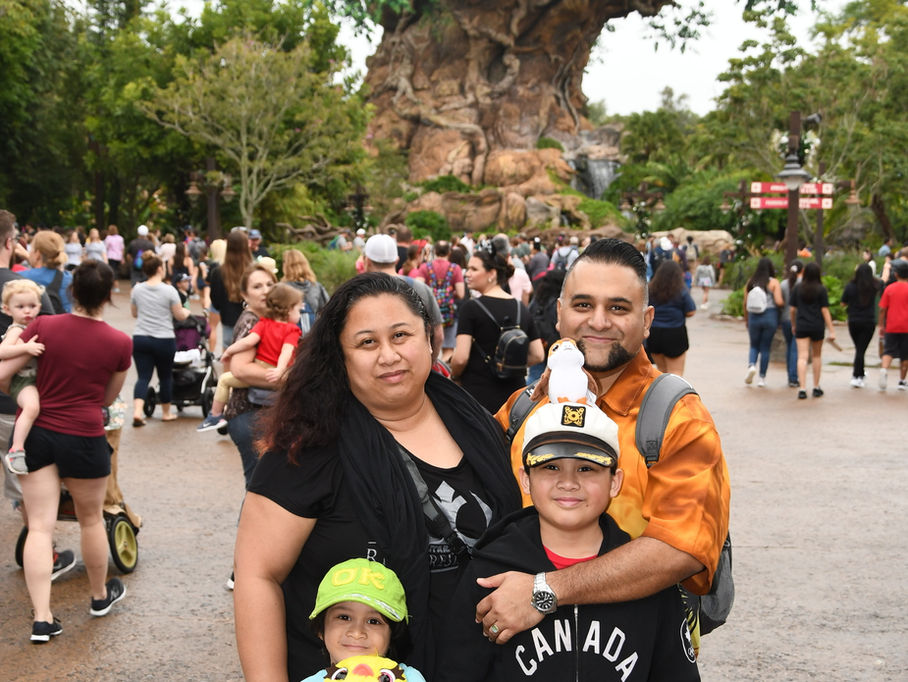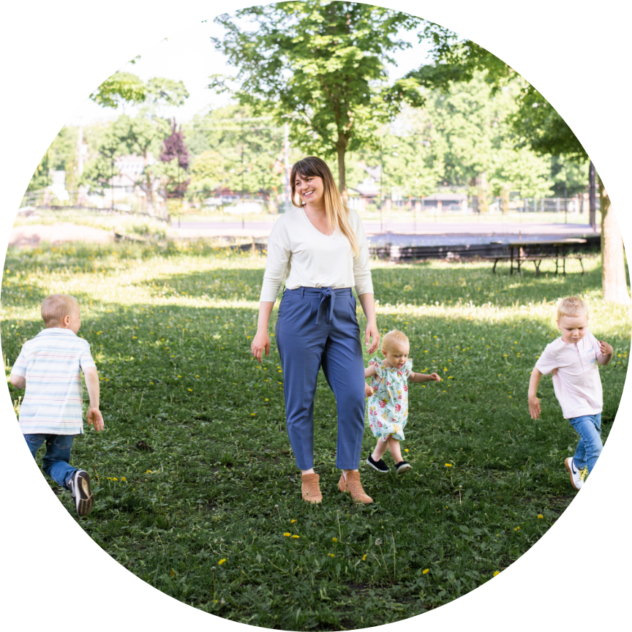You will have to excuse my lack of regularity in these posts, but I’m assuming all of you reading understand that some things must happen when you have time, not when your schedule dictates it.
How are you doing in these last few weeks of social distancing, likely working from home, navigating homeschooling your children, or playing with toddlers, all while trying to maintain your mental health? Feel free to reach out to me to chat – to be totally honest I’ve been struggling. With a 4-year-old and 2-year-old at home, a husband that mostly works on job sites so can’t be home, I’ve been prioritizing client work and calls (which often have star appearances from my boys) and quality family time. But on top of all of this, our house is for sale (talk about bad timing!) and I’m 20 weeks pregnant!
I was recently sharing these concerns with Paul Nazareth (master networker, VP Education & Development at CAGP, Founder at Connectworking, and Advisor at CanadaHelps) and he said something that resonated with me immediately (especially as a baseball fan): “You need to stop expecting a homerun on the first pitch when you are learning how to play the game”. We are all learning how to navigate this global pandemic together, we need to be kinder and more forgiving to ourselves and others.
My plans for featuring Paul on the blog have been in the works for a while (whether he knew it or not), but obviously with coronavirus on all our minds the conversation shifted a bit. Currently, Paul is working at home with his two boys (12-year-old Luke and 7-year-old Gabriel) while his spouse works outside of the home as an essential service worker. His days are no longer filled with travel and presentations, and he can’t find the energy he usually gets from crowds, adventures, and meeting new people. Now he’s in his home office (rocking some great and much more casual outfits), sprinkling work, networking, parenting and self care throughout the day.
Paul is very strategic, focused on helping others, and he fuels his career and family life through gratitude, recognizing the importance of highlighting and celebrating others (like our heroes and mentors). I’m sure many of you have heard about his Golden Crab Awards.
1. Briefly tell me about a day in the life of Paul Nazareth.
 Before Social Distancing:
Before Social Distancing:
I have spent the better part of a decade growing my national influence as a philanthropy instructor, with a bank, a charity, and an educational foundation. I have done this because I love the adventure of travel, learning from people and seeing the country.
I have also done this because my partner and children have NOT enjoyed the travel as much as I have, and I’ve been clear before we were married that I’m an obsessed mission driven individual. I’ve been on a clear career path for 21 years, from volunteer, to faculty, and now a leadership role all on the same path (even a tattoo to that effect).
People ask me how the travel and young family mix but my partner and children are introverts and the time away (during the week only, I’m never gone for more than two or three days, max five at a time) fuel my career and passion. But weekends are a deal-breaker, I’m always home and present by Saturday morning at the latest. This on and off cadence helped our family to regulate our time well.
2. How are you managing with the work at home situation, especially with having two kids at home? Any tips for making the day more productive?
I’m not, it is thinly controlled chaos. But we’re giving ourselves permission to be human and not try to force harmony, balance, or even the kid’s educational schedule in the middle of a global crisis of unprecedented implications and impact.
But what has kept us together and alive? Before all this, we embarked as a family on a journey of communication and honest and daily discussion, including “family-sayings” that we share as a family regularly.
I’ve also found comfort, guidance, and support in several resources, which are noted below. These have given me the “permission” to be human and balance things as best as I can:
- Brene Brown on ‘self permission’ when things are new to fail and be open to what growth means.
- Whitney Johnson is an author of several best selling books, in this podcast she helps reframe how we can pivot in this crisis and come out of it intact her words help pick me up from the almost depression I felt having my exciting and engaging travel schedule shut down.
- Robin Sharma, a coach who has helped me tremendously in my career, and her insights on journaling. Journaling has been a key secret to my success, here is a podcast on how to do that and make sure it’s productive and not a diary.
3. Many would refer to you as a Master of Networking, you are certainly leading discussions on the power of networking and are always willing to help others, how do you find time to do this among your work and family life obligations?
For a long time, I was simply a curator of the ideas of others, and as you can see from the way I share the resources of best-selling authors that is still a good part of my strategy. But then, mentors shared with me that after hitting a decade in the world of work, and as I found more success, built networks, and had more to leverage, that I could SERVE others (here’s a great read from HBR on that). My passion isn’t really for ‘networking’ it’s helping people of purpose and passion create a career they love and a legacy of impact through work. Once I shifted gravity from external recognition to internal purpose it brought both motivation and focus.
My focus on helping others comes from the true passion I have for this. I don’t have a lot of hobbies, watch any sports, or drink, and I’m not actually that social. I’m focused about righting the wrongs I see in hierarchy, patriarchy, racial access, and inclusion, through my time invested in networking and serving others. I can’t hurt the bad people, no sense in it. Resentment as they say is drinking a poison and expecting the other person to die. I spend my time lifting others up, and serving, supporting, and sponsoring others. I’ve discovered that networking is my most effective way of doing this.
4. So how are you managing continuing your networking, or support, sponsorship, and lifting-up of others, during social isolation?
The biggest mistake I’ve seen in the month we’ve all been cooped up in social isolation is that people think that the medium IS the message and sorry, it’s certainly not. Just because we CAN fill our days with Zoom video calls and phone discussions, doesn’t mean we should. We need to find a healthy purpose and strategy and then network accordingly.
The best roadmap I’ve seen for this is Adam Grant’s book, and the best networking resource of all time continues to be the Canadian authored Work the Pond.
5. With the importance of face-to-face communications, how can fundraising focus on building and maintaining relationships with the donors? Keeping in mind many of us our balancing kids in the background, trying to incorporate some educational activities with our kids because of school closures, and maintaining our own mental health during these difficult times.
We need to give ourselves permission to truly adapt, not just “pivot” and pretend that we’ll just take it in stride. We have to make time for hand offs, mental breaks, walks outside, conflict, and meltdowns (inevitably these have, or will, all happen), and we have to make space for all of this.
6. When we spoke, we chatted about our shared values of including our children in our work, to inspire the next generation of philanthropy. Can you expand on this a little bit, share how you do this, and if this helps you find a blend between your home life and work life?
Yes for sure, I shared this concept of how daily words help us to find and teach our values and let me be honest this was born because I was travelling so much I was afraid of dying and my children not knowing enough about our family or the values I wanted them to have from me.
One of my greatest career and life mentors is an unapologetic family father, his partner is also a highly successful career fundraising social-profit professional. He inspired me to go deeper with family as they age because we have limited years with them – here is a public travel manifesto.
7. In your role you travel extensively, what impact does this have on your work-life blend?
Early in our lives together my partner shared that if we got married that they as a strong introvert could not handle being the ‘spouse of an Executive Director’ when it comes to all the events. I also learned that MANY of my male ED peers were divorced because of all the events and late night and weekend work. I learned how to shape my travel to work for my partner and me. Blend is better than balance. I wanted both adventure and a LOT of peopling, but my spouse and kids didn’t. So the travel is good for me (in fact it’s great for my health: I swim, write, walk get to think with the alone time) and then come home to my family and all the fun and chaos that comes with them. Much of this list comes from this book.
8. You are the first father I’ve interviewed on my blog, and one of the reasons I reached out to you is because publicly many people see you out at events all the time, networking, presenting, and managing your career well. However, I also know your children and family life are extremely important, can you speak to some of the challenges you’ve encountered as you’ve built your career regarding putting family first?
People don’t listen to me when I say 1000 times that I am committed to paying the social media price of being INAUTHENTIC. I schedule much of my content, my goal is to be informative not social. I don’t share pictures of my kids, and you’ll see I’m deliberately not on Facebook because I have no desire to be social or personal. I’m career driven when I’m ON, and I’m 100% family focused when I’m off. My phone and devices go in a box near the front door and I do not, do not, DO NOT work on Saturday mornings or check email when I’m with family and I won’t compromise or apologise for it.
I often say that balance is a lie, I’m obsessed and with the travel I sometimes work 20 hours in a day. But when I’m home, I’m present and engaged. My mentors, and I have many career mentors who I grill and observe around family life, have impressed upon me how short our time with children is. That we spend 98% of our time together before they’re 20 and the last 2% is the rest of our lives. Wow, that hits home.
9. Overall, how do you think the social profit sector is doing in terms of creating a work-life blend culture?
Slightly better than the for-profit sector but not by much. Like any sector we struggle, for many our ideology bleeds into our identity and the job takes over.
As a fundraiser, when I started a family it was hard to consciously put down a lot of my volunteer roles. I was running an “out of the cold” in Toronto 40 hours a week on top of a job. I loved it, the cooking, the community, but mentors helped me to understand that family was a job too, that I had to commit the time to this start-up, my family, and until they were older and more sufficient that it needed all my attention and energy.
Even now, people ask me ‘how can you be on 3 boards and 2 advisory groups?”, so let’s be transparent, I’ve chosen these organizations very carefully because several of them are low time commitment or close to my family life.
A decade ago, I also gave myself permission to STOP all social sector special events. I do not go to ANY special events. This was a promise to my spouse, and I asked them to help me stay away. No gala, golf, or committees, only networking events, and we have a schedule by season as to how many hours a week I can spend. And we have monthly check in discussions on whether I’m sticking to these commitments. One of my current challenges is that as the kids age out of early stage childhood, I want to rebuilt my life around them. I mentor under great fathers in my own peer network like Aneil Gokhale, Allen Davidov and Rickesh Lakhani, to name a few. We all worry we’re not doing enough.
10. In your opinion, what are the top 3 things our sector needs to do to help empower working parents as leaders?
Let’s be clear, 70% of our sector is Women and a very low percentage of leadership in the sector is women. This is institutionalized misogyny and sector-patriarchal-architecture. Leading the way to #DecentWork is the Ontario Nonprofit Network and I’m grateful to sit down, be quiet, listen and learn about how to be an ally, support, and sponsor. This must change for women before we even talk about what it means for men.
11. What is on your current reading list (if you know Paul, be prepared for a long list):
- This was one of the world’s best selling management books of last decade and here is the just released follow up that I’m reading now.
- Simon Sinek’s latest.
- This is the ULTIMATE trilogy for career.
- This book is a key read for those who want to reinvent but actually it’s her podcast that is near the top of my list.
- This author is huge and best selling but again his podcast is my #1 because as a parent it is really hard for me to get reading time outside of travelling.
- Whatever is Brene Brown’s latest is always on my list, but it’s her NETFLIX special that I recommend for a lot of folks who are shut in right now…
- Lastly, this best seller is something I’m reading and re-reading this year.
12. And lastly, when you do manage to find a few moments for yourself, what is your go to self-care activity?
We all need to get more in touch with what that means. For me, it’s haircuts at the Mancave where they have music I like, licensed lounge and a place I can have energy that I can’t express as a father or charity sector professional.
My partner and I accidentally honeymooned in Cuba and I fell in love with cigars as a way to relax and unwind. Partly because the toxic masculinity of men won’t allow us to really spend time together and talk without sports, spitting, or spirits, so this is something refined and a little gentlemanly camaraderie infused. My favourite spot is Village Cigar where again, haircuts, whiskey, and good music abound in a space where men can be healthy and open with each other outside of usual toxic stereotypes.
Travel also allows me alone time and self-care that I don’t have to be guilty about. When I travel, I give myself time to have a good meal, swim, pray, write and again, no guilt that when I’m home the default position is father and invested in the family. I pushed and pushed to spend 25, 50, and now 75% of my work time out of an office and on the road, this brings me incredible mental health.


Paul’s family pets Shabba and Mooshu have also payed an important role in his life, especially his dog Shabba, who passed away in 2019. His dog was his constant companion as he transitioned to fatherhood.
Lastly, I take a 24-hour retreat twice a year on a farm that the University of Toronto owns. I run a strategic planning retreat for Paul Nazareth Inc., where I reflect, whiteboard, journal, debate and re-align my energy and priorities in the summer and winter.
I hope this read was helpful to you, and brought a bit of insight on how we are all struggling and trying to make the most of the challenging situation our world has found itself in. If you want to hear more from Paul, you can connect with him on LinkedIn, Twitter, or Instagram.
Thank you for all the hard work you are doing to keep our sector supporting critical causes.
Stay healthy, reach out if you need to chat, and stay tuned – the next blog post will feature Cindy Wagman of The Good Partnership.



